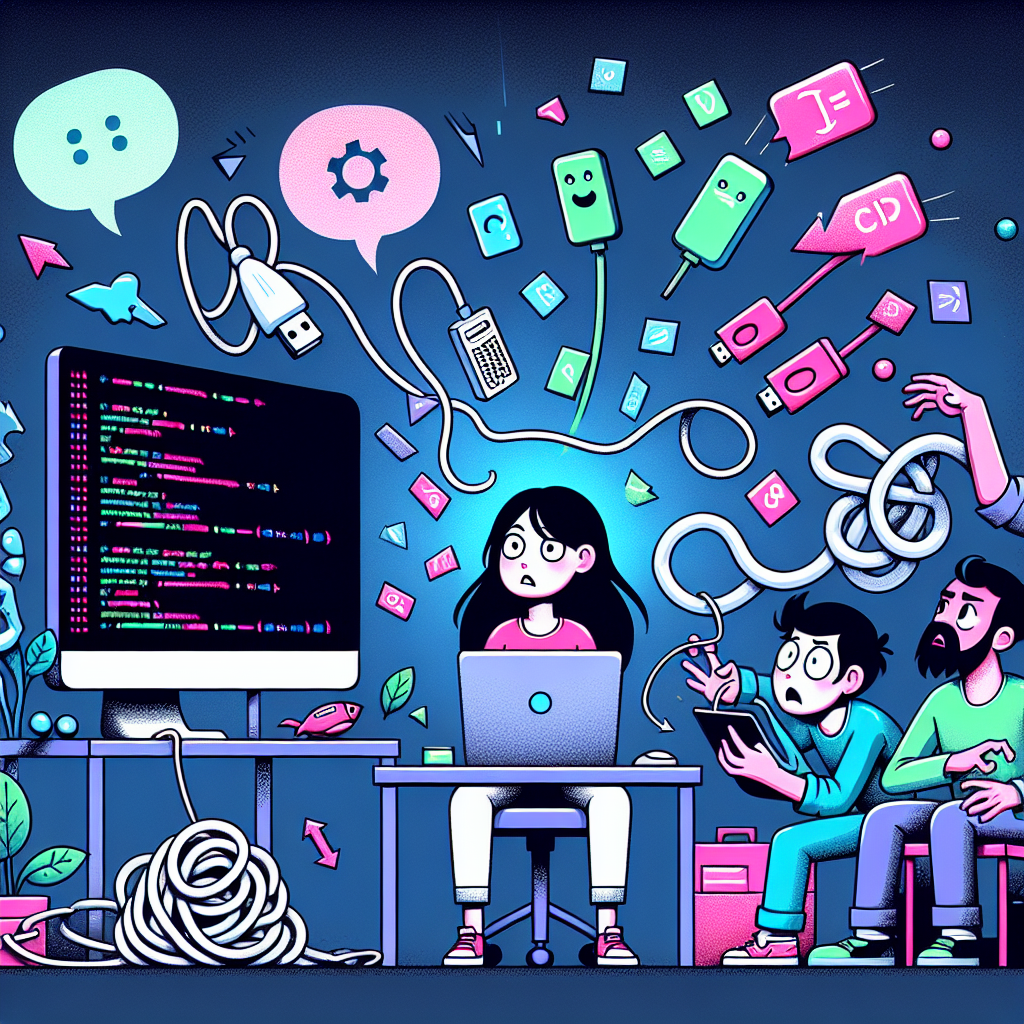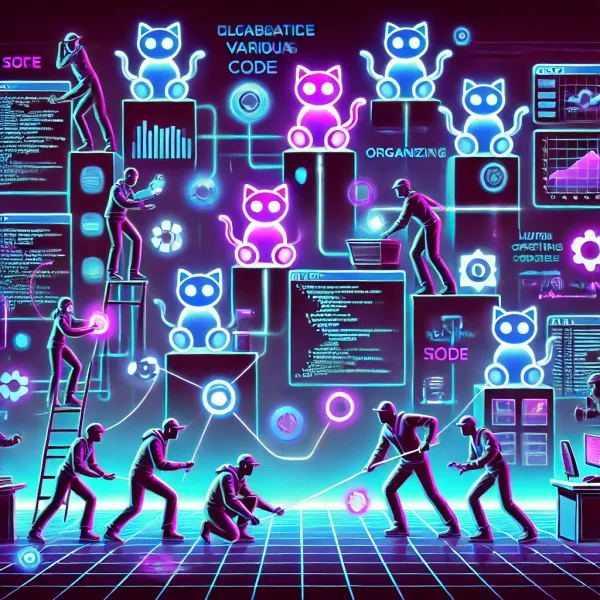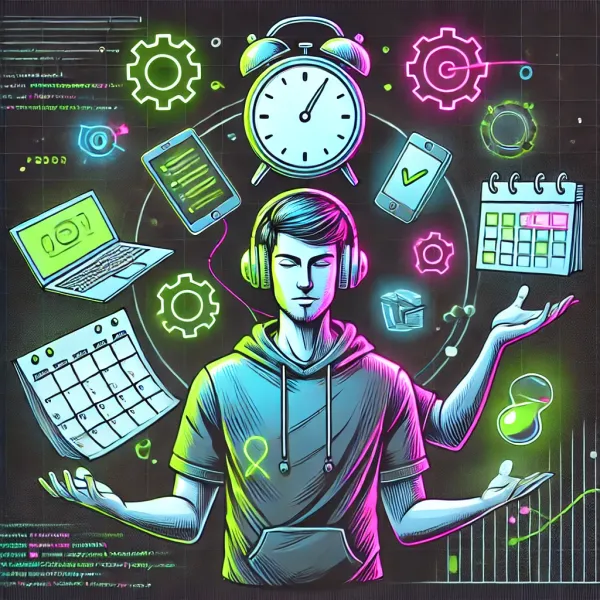Navigating Rapid Change in Software Development: Essential Soft Skills for Modern Engineers
Discover the skills and tools you need to deal with a rapidly evolving software engineering team.

Software development has always been characterized by constant evolution, but the pace of change has accelerated dramatically in recent years.
As both a developer and technical lead, I've witnessed firsthand how technical skills alone aren't enough to thrive in this environment.
The ability to adapt, communicate, and think strategically has repeatedly proven more valuable than any specific programming language or framework.
This guide explores the essential soft skills that enable developers to not just survive but excel amid rapid change.
These capabilities represent the difference between those who struggle with each new paradigm shift and those who leverage change as an opportunity for growth.
The Adaptability Advantage
In my experience, adaptability is the foundation upon which all other soft skills build. I've worked with brilliant programmers who became bottlenecks because they couldn't—or wouldn't—adapt to new methodologies or technologies.
True adaptability goes beyond grudging acceptance of change. It means:
- Embracing technological evolution as an opportunity rather than an obstacle
- Approaching new tools with curiosity instead of skepticism
- Recognizing when your preferred solution isn't the right fit for changing requirements
When our team transitioned from a monolithic architecture to microservices, some developers thrived while others struggled—not because of technical capability, but because of their mindset toward fundamental change.
Those who approached the shift with flexibility quickly became the most valuable team members.
Continuous Learning as a Practice
The half-life of technical knowledge continues to shrink.
What's cutting-edge today may be obsolete within years or even months.
This reality demands a structured approach to ongoing education.
I've found these strategies particularly effective:
- Allocate dedicated learning time in your calendar—treat it as non-negotiable
- Diversify your learning sources beyond official documentation (community forums, open source contributions, mentorship)
- Apply new knowledge immediately through side projects or experimental features
When WebAssembly emerged as a game-changing technology, I dedicated Friday afternoons to exploring it.
This consistent practice meant I was prepared when a project required these skills, rather than scrambling to learn under pressure.
Strategic Time Management
Time management in software development isn't just about productivity—it's about sustainability and focus in an environment of constant change.
The approach that's transformed my work involves:
- Context batching – grouping similar tasks to minimize mental context switching
- Defensive calendaring – blocking focused development time that can't be interrupted
- Strategic prioritization – differentiating between urgent tasks and important ones
When our organization underwent a major platform migration, I instituted "migration mornings"—dedicated blocks where I worked exclusively on migration tasks without interruption.
This practice ensured steady progress without sacrificing other critical work.
Communication That Creates Clarity
Clear communication becomes exponentially more important during periods of change. Ambiguity breeds confusion, and confusion breeds resistance.
I've learned to:
- Front-load crucial information in both written and verbal communication
- Tailor technical explanations to different stakeholders (engineering vs. product vs. leadership)
- Proactively communicate dependencies and constraints before they become blockers
During a recent architectural overhaul, I implemented a weekly "change digest" that summarized important decisions and their rationales.
This simple practice dramatically reduced misunderstandings and resistance across teams.
Problem-Solving Beyond the Code
Problem-solving in software development transcends technical challenges—it includes navigating organizational obstacles, resource constraints, and competing priorities.
Effective problem-solving during periods of change means:
- Identifying the actual problem rather than its symptoms
- Considering second-order effects of potential solutions
- Balancing immediate fixes with long-term sustainability
When faced with a performance crisis in our main application, our team initially focused on optimizing code.
The breakthrough came when we reframed the problem as a user experience issue rather than just a technical one, leading to a more holistic solution involving both code improvements and UI changes.
Emotional Intelligence in Technical Settings
The pressure of rapid change can amplify tensions within teams.
Emotional intelligence—understanding your own reactions and those of others—becomes invaluable in these situations.
I've found these practices essential:
- Recognizing stress responses in yourself and teammates before they escalate
- Creating psychological safety when exploring new approaches
- Separating technical critiques from personal criticism
After a particularly challenging release that resulted in some team friction, we instituted "retro roulette"—a randomized approach to retrospectives that helped depersonalize feedback and focus on systemic issues rather than individual shortcomings.
Collaborative Adaptation
Change rarely affects just one person or team.
The ability to collaborate effectively across functional boundaries can determine whether changes become opportunities or obstacles.
Strong collaboration during change requires:
- Establishing shared vocabulary across technical and non-technical teams
- Building resilient relationships before they're tested by challenging situations
- Maintaining transparency about progress, roadblocks, and uncertainties
When integrating a new authentication system, we established a cross-functional working group with representatives from engineering, security, product, and customer support.
This collaborative approach ensured we addressed concerns from multiple perspectives, resulting in a smoother transition than any single team could have managed alone.
Business Context and Technical Decisions
Technical choices don't exist in a vacuum.
Understanding how your work connects to business objectives allows you to make more strategic decisions during times of change.
This mindset involves:
- Connecting technical initiatives to business outcomes
- Quantifying the impact of technical decisions in business terms
- Considering competitive landscape when evaluating technical approaches
By framing our performance optimization work in terms of conversion impact rather than just technical metrics, I secured additional resources from leadership who could now understand the business case for technical investment.
User-Centered Through Turbulence
While adapting to internal changes, it's easy to lose sight of the end users.
Maintaining a user-centered perspective ensures that changes ultimately deliver value.
I've found these approaches helpful:
- Incorporating user feedback into technical planning
- Testing changes with real users whenever possible
- Measuring success through user outcomes, not just technical metrics
During a major UI framework transition, we maintained a panel of power users who provided feedback throughout the process.
Their insights helped us prioritize features and identify pain points we would have otherwise missed.
Embracing Change as Opportunity
The most successful developers I've worked with don't just tolerate change—they actively seek it out as an opportunity for growth and innovation.
Developing these soft skills isn't optional in today's software landscape.
They represent the difference between merely keeping up and truly leading through periods of transformation.
By cultivating adaptability, continuous learning, and the other capabilities we've explored, you position yourself not just to survive change, but to thrive because of it.
What changes are you currently navigating in your development work? Which of these skills might help you transform those challenges into opportunities?




